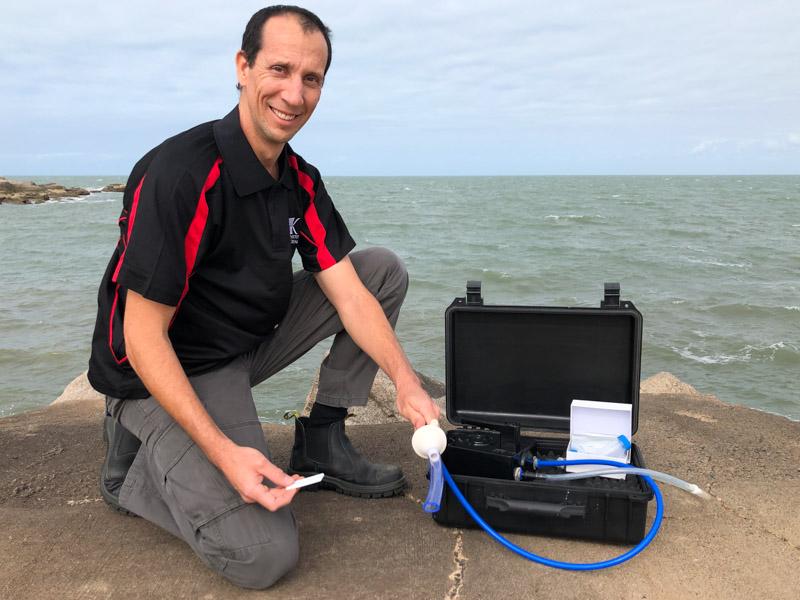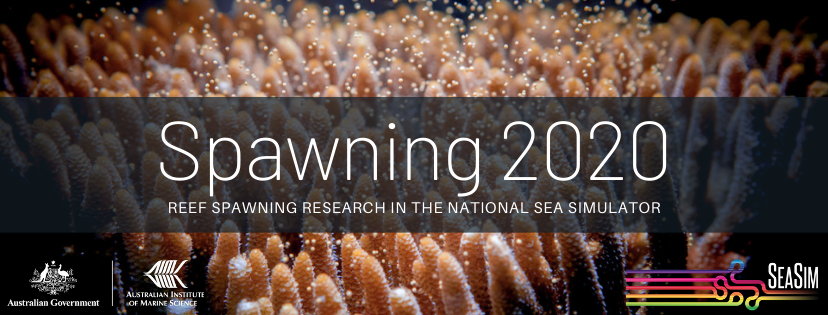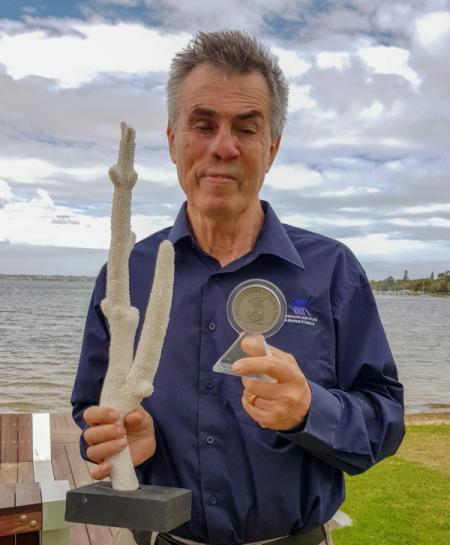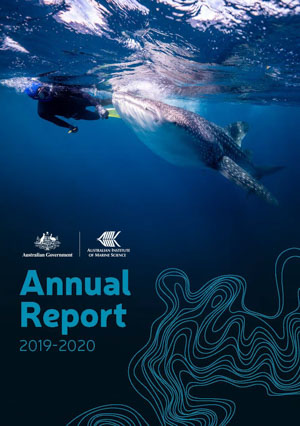Green light for SeaSim expansion, ABC's Reef Live, CRISPR tech in corals, whale shark size and more | Waypoint, December 2020
No images? Click here
December 2020 | View previous edition
Hi ,
Welcome to our latest edition of Waypoint, a collection of news, achievements and milestones from the Australian Institute of Marine Science.
From all of us at the Australian Institute of Marine Science,
we wish you all a Merry Christmas and a bright, prosperous and safe 2021!

The world’s most advanced research aquarium facility receives a boost
The Australian Government is funding the expansion of the National Sea Simulator at the Australian Institute of Marine Science as part of the 2020 Research Infrastructure Investment Plan.
The future is now: long-term research shows ocean acidification ramping up on the Reef
Ocean acidification is no longer a sombre forecast for the Great Barrier Reef but a present-day reality, a study led by Dr Katharina Fabricius reveals.
Biggest fish in the sea are girls
Female whale sharks grow more slowly than males but end up being larger, research from Dr Mark Meekan suggests.
The ten year study of the iconic fish has found male whale sharks grow quickly, before plateauing at an average adult length of about eight or nine metres.
An international science team, including Dr Line Bay, have used CRISPR-Cas technology to identify a gene responsible for heat tolerance in a coral on the Great Barrier Reef
New marine science leader appointed to AIMS in WA
Dr Karen Miller has been appointed as Research Program Director in Western Australia.
Dr Miller also leads AIMS’ Perth facility at the Indian Ocean Marine Research Centre in Crawley.
AIMS' coral spawning science in our National Sea Simulator took center stage during ABCTV's 'Reef Live', a two-part TV broadcasting event which swept up Australia audiences into the majesty and wonder of the Great Barrier Reef and coral spawning.
This live TV event, a Northern Pictures production for the ABC with support from Screen Australia and produced by Karina Holden, brought audiences across the Great Barrier Reef from the comfort of their loungerooms, where they dove into the Great Barrier Reef, its creatures, the challenges it faces, and the hope that coral spawning brings to the Reef's future.
Presenter Dr Ann Jones, from ABC Radio National's Off Track, was on location at SeaSim during the broadcasts to showcase behind-the-scenes of coral spawning research in the world-class facility.
Other locations included Moore Reef off Cairns, and Heron Island - including live underwater chats!
Dr Kate Quigley and PhD candidate Annika Lamb's coral research research was featured amongst other Reef science during the broadcast, highlighting the excellent AIMS science being carried out in SeaSim to help the Great Barrier Reef adapt to and recover from the impacts of climate change.
If you missed the shows, you can catch up on the Friday and Sunday night episodes on iView.
New test can detect crown-of-thorns starfish as quickly as a home pregnancy kit
AIMS researchers have developed a dipstick test that can detect crown-of-thorns starfish (CoTS) on coral reefs by using the same technology as home pregnancy tests.
The dipstick, which is designed to be used in the field, measures specific DNA that CoTS release into the seawater. The rapid test can detect very low numbers of the coral-eating pest, which can be difficult to spot with current survey methods.
Octogenarian snapper found in WA becomes oldest tropical reef fish by two decades
An 81-year-old midnight snapper caught off the coast of Western Australia has taken the title of the oldest tropical reef fish recorded anywhere in the world.
The octogenarian fish was found at the Rowley Shoals—about 300km west of Broome—and was part of a study that has revised what we know about the longevity of tropical fish.
Coral spawning might be finishing for 2020 on the Great Barrier Reef, but for AIMS scientists, the work has only just begun.
This year, they are focused on research towards reef recovery, adaptation and restoration, as well as understanding how human and natural drivers influences the early lives of corals and crown-of-thorns starfish.
Inaugural AIMS medal awarded
Dr Andrew Heyward was awarded the Australian Institute of Marine Science Medal at a virtual ceremony in November.
Amongst a long list of achievements, the Medal was awarded in recognition of Dr Heyward's passion for marine biology, recognition of the contribution of colleagues and his continued pursuit of excellence.
The AIMS Medal will be awarded every two years in recognition of outstanding and enduring contribution to AIMS’s mission, commitment to sustained excellence, and exemplification of AIMS values.
Celebrating AIMS science: AIMS Annual Report 2019-2020
The AIMS Annual Report is available online, and highlights just some of the excellent achievements by the Institute over the 2019 - 2020 period.
FOLLOW
















